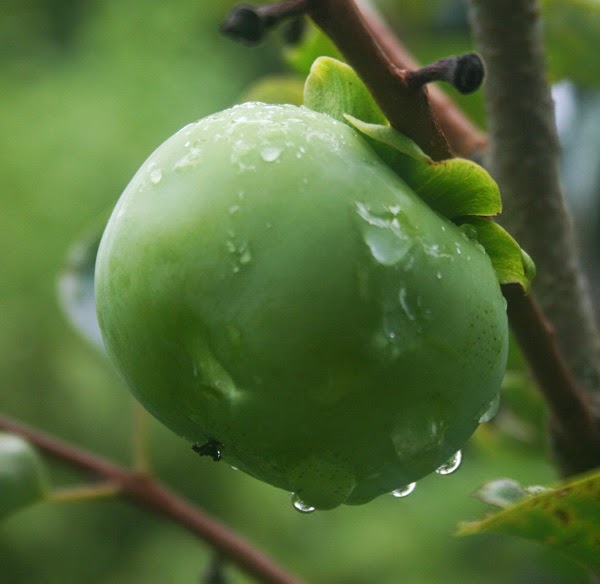This is a very good interview over at A Way to Garden. Michael’s approach is very similar to mine (except I greatly dislike yoga):
Michael: So a food forest [above, a young section of Michael’s] is not growing food in the forest. It’s growing food like the forest. When you take a very healthy ecosystem forest, you see a lot going on. You see overstory trees, mid-story, understory trees. You see vines running up through it all. You see herbaceous ground-level layers running, and it’s all working together. It’s all pumping and working symbiotically.
So when we take that observation, we see that pattern, and when we come to plant something on our landscape out in the open lawn, you want to plant a fruit tree, instead of sticking that fruit tree sort of out there in the middle of the sea of grass at the whims of weed whackers, what you’re doing is you’re creating a group for it, what we call a guild in permaculture. Typically these are perennial companion plants that support that main fruit producer. So we’re not necessarily going to stack that upper, mid-story and understory, but we’re going to take the concept of putting plants together to support each other.
And in that case, we often will put in something that fixes nitrogen, something in the legume family, something like the, was it the wild Baptisia, with beautiful blue flowers, and there’s all these other benefits as well. But fixing nitrogen through the roots to the plants around it is like planting your fertility in one go.
Then you’re also thinking about, O.K., well, let’s draw in beneficial insects. So let’s put something like yarrow in there, which has this great architecture, great habitat for all kinds of beneficial insects.
And then you’re also going to want something that’s like a mulch plant, something I love to use, like comfrey, which is also medicinal. So multipurpose plants, but also things that I can chop and drop for mulch or that can die on their own and pulse that soil level and feed that tree long-term. And then you might have something like Echinacea, a little gas station for the pollinators to land on.
Margaret: Yes. Yes. Yes.
Michael: Yeah. And augment that pollination. So you’re creating diversity. A guild is not just the plants, it’s the life that it attracts as well. So it’s going to affect ecology balance. And really what you’re doing is taking yourself off the hook for having to really care for that tree because you’ve done a little bit of design upfront by putting plants together, they help serve each other’s needs, and that gives you more time to do yoga, swing in the hammock, play with your kids.
Margaret: Wait for the harvest [laughter].
Michael: Wait for the harvest, or go do more of these. And I call these fruit patches. Of course, they could be a nut patch, it could be a bush fruit, but it’s a very simple concept. So it takes that larger idea of a food forest, and brings it down to something that could be eight, 10 feet in diameter only. And you can fit-
Margaret: Like at the canopy of the tree, so to speak, and underneath it like that, with that size?
Michael: Right.
Margaret: Not of the whole yard. It doesn’t have to be the whole yard. It could be this one area.
Michael: Right. And then if you did have more space, and you wanted to have less lawn, you could start spacing these patches out 12, 15, 20 feet apart and have your other fruit trees in those spaces. And then over time, if you want, you could kind of keep doing what I call sheet mulching, which is like lasagna gardening. It’s like laying down cardboard and newspaper and straw and wood chips and mulch, whatever sort of material that you have, organic material around you, floating around us. Put that down. And that helps extend those patches, so that over time your lawn disappears and you’ve got this cornucopia of plants. And when I do something like that, I’ll often put in sort of running plants that will help sort of cover that space and not have to maintain it.
(You can read the entire post here – it’s inspiring.)


1 comment
That’s a neat interview. Thanks for posting it, Dave.
I am really interested in seeing how the Fruit Patch app they are talking about works if/when they expand the service area to include North Florida. That could be a lot of help to people in picking appropriate support plants for their fruit forests.
Comments are closed.